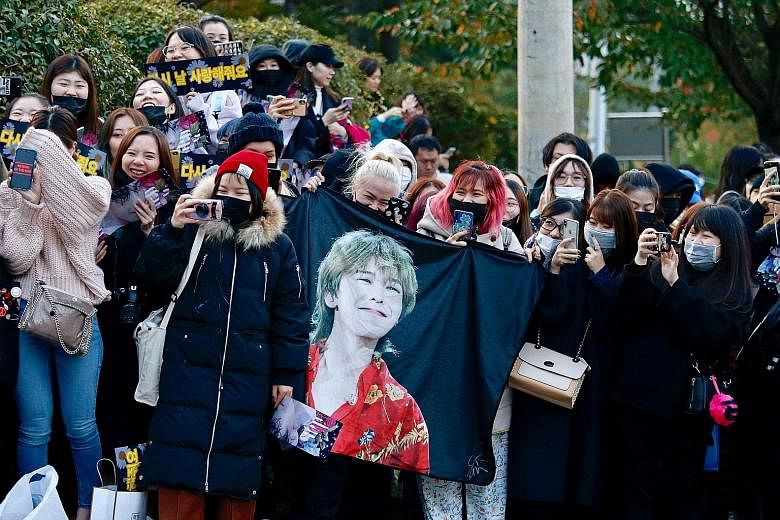SEOUL • South Korea is the land of foldable phones, K-pop and beauty creams but, somehow, its best and brightest are missing out on the hottest innovation trends.
Where is South Korea's Uber? And there's nothing close to China's Ant Financial, the fintech giant backed by Alibaba, which spans mobile payments to asset management.
The few unicorns the country has are baby-sized. Even Indonesia's fledgling venture-capital scene, which South Korean funds enthusiastically bought into, has churned out bigger start-ups.
So it's little surprise that President Moon Jae-in is pushing for South Korea's second venture boom in the past two decades, vowing to infuse US$12 billion (S$16 billion) over the next three years. But it's worth asking why they are here in the first place.
In a word: regulation.
Unicorns often operate in legal grey zones. Ride-hailing firms from Manila to Paris to San Francisco have battled entrenched local interests. There's a big distinction in South Korea, however, because executives can be personally liable in labour disputes.
Last month, prosecutors indicted Mr Lee Jae-woong, founder of South Korea's answer to Uber, for operating a taxi service without a licence.

With South Korea hit by two trade wars and the highest level of youth unemployment in decades, you'd think Mr Moon would be eager to slash the red tape that hinders its budding gig economy.
Consider, too, the hurdles faced by digital banks, which bear excessive capital requirements. In May, regulators rejected Viva Republica's bid for the nation's third online banking licence, questioning its ability to raise sufficient capital. It is now giving another try, this time with powerful partners like KEB Hana Bank, one of South Korea's biggest lenders.
No doubt, capital is a critical factor that allows online banks to thrive. Kakao Corp's digital lender, for instance, is gaining users faster than smaller rival KT Corp-run K bank, after raising 1.8 trillion won (S$2.1 billion) of capital within the first two years of operation.
But in banking, it's the capital ratio, not the absolute level, that should concern regulators. Start-ups should be able to grow assets at their own pace as long as their exposure to risky assets is in line with traditional banks. So why not open the floor to competition?
Meanwhile, there's a sense that chaebol reform, which ushered Mr Moon to office in 2017, has stalled.
Rather than overhauling these family-run groups, the administration has come crawling back to the likes of Samsung Electronics for jobs and capital investment as the economy slows.
This is bad news. Thanks to their exclusive contracts, chaebol can squeeze profits along the supply chain, which strains South Korea's will and ability to innovate, says Seoul National University economics professor Sangin Park.
South Korea's secret sauce used to be process innovation, as Samsung made semiconductors better and quicker than global rivals and Hyundai Motor streamlined car manufacturing.
Times have changed. These days, South Koreans want all the trappings of a sharing economy, complete with connected cars and tech-driven financing.
Stiff regulation and rigid chaebol supply chains stifle unicorns. So Mr Moon, set them free.
- Shuli Ren is a Bloomberg Opinion columnist covering Asian markets.

